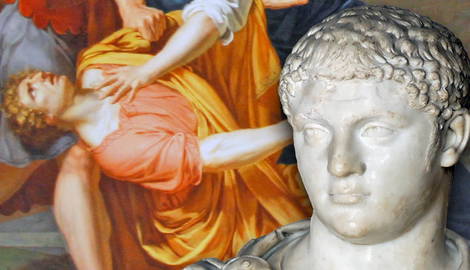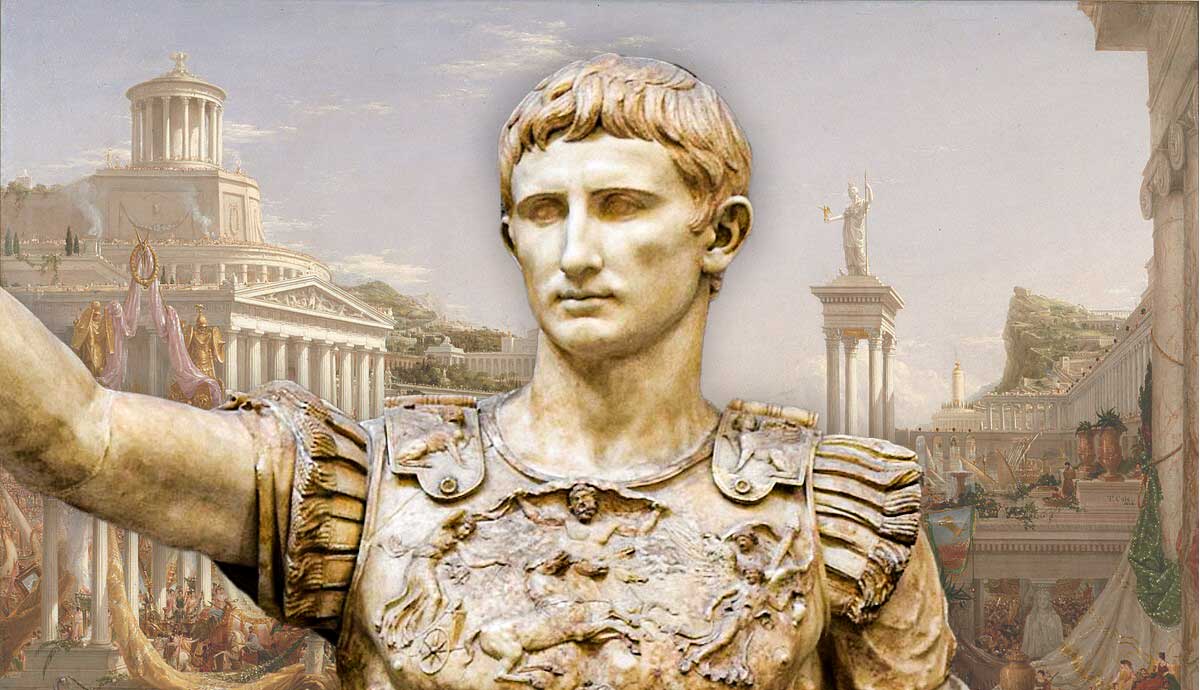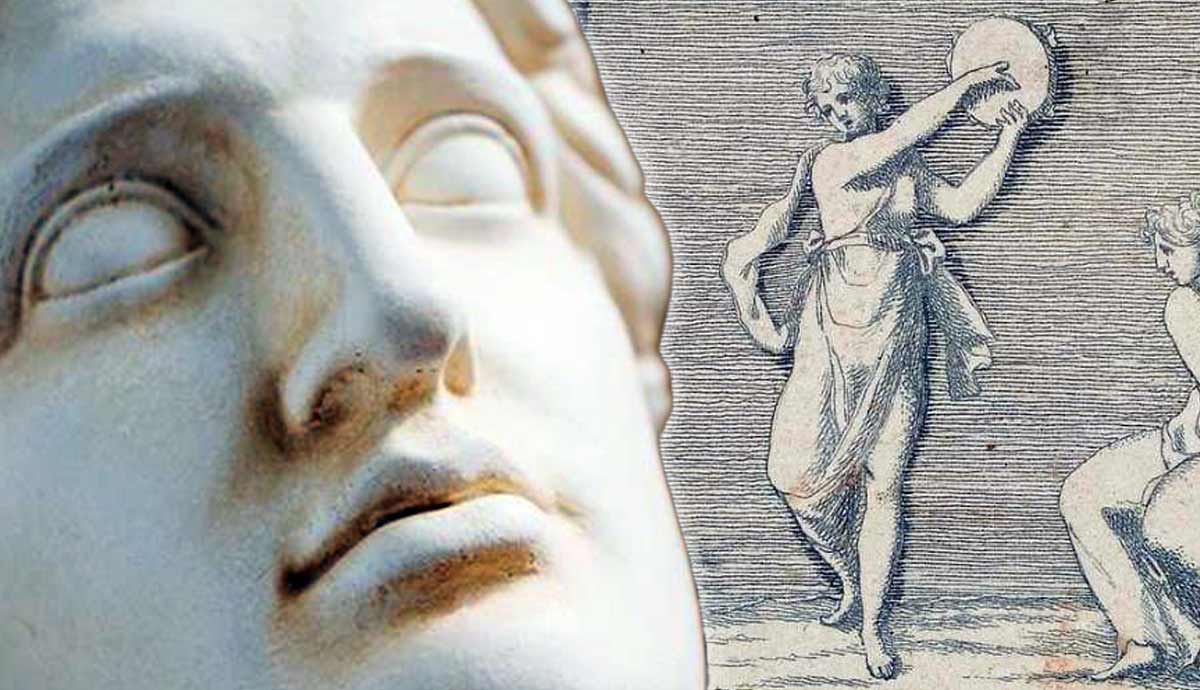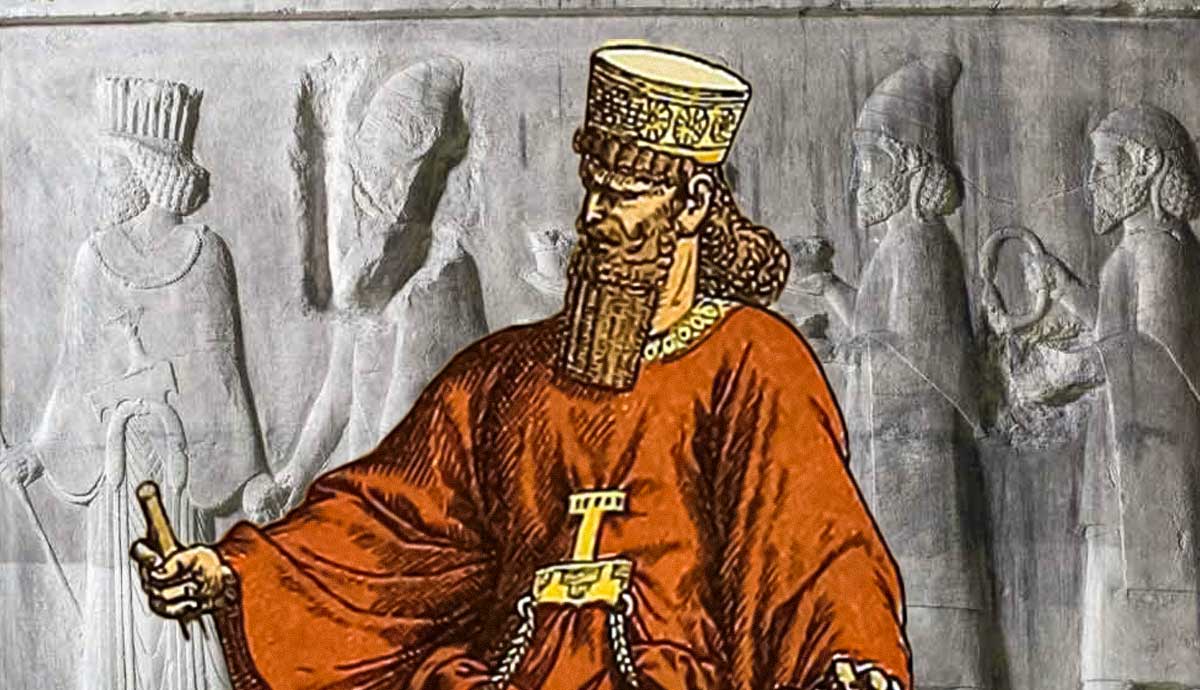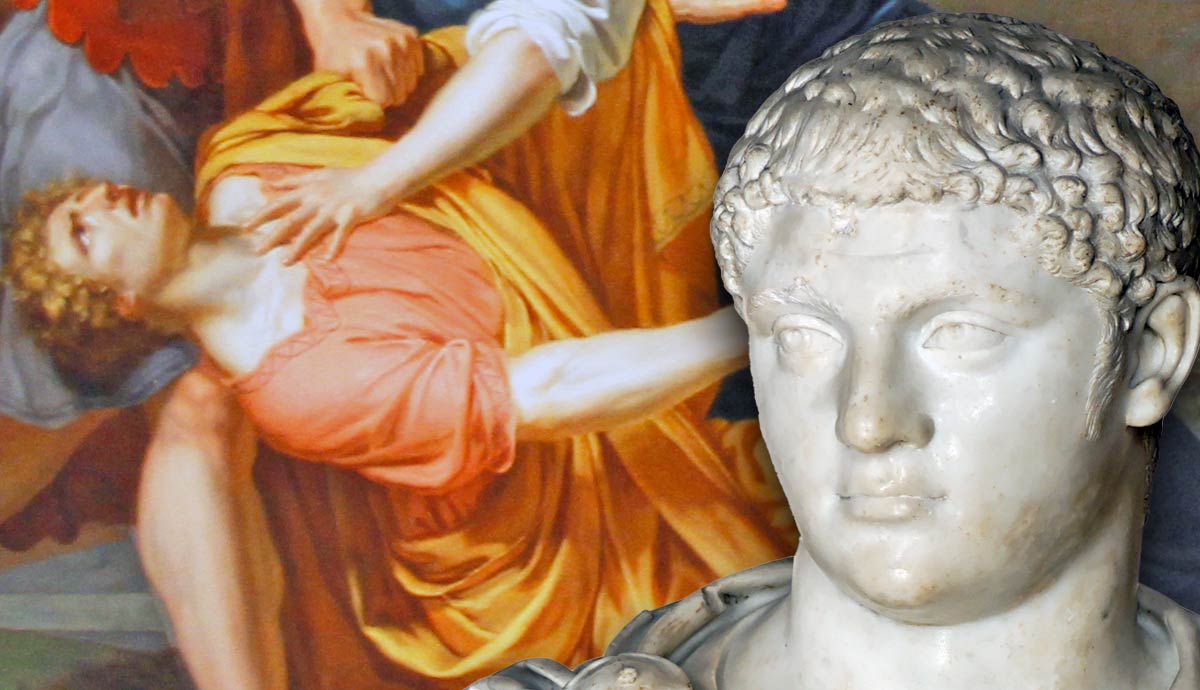
The life of the Roman emperor Gera is, in some ways, a tragic tale of brotherly rivalry and parental miscalculation. He was also an emperor for whom we have little reliable historical information. His story is told mostly through the histories of his father, the emperor Septimius Severus, and his brother, the emperor Caracalla. This is because, when his father died, pre-eminent power was passed to both Geta and his brother Caracalla; the latter, who saw his brother as a rival, assassinated Geta.
Geta: Child of Civil War

Geta (born 189 CE) was the younger son of Emperor Septimius Severus, who, in addition to being the first African emperor of the Roman Empire, emerged as the eventual victor of a protracted and chaotic civil war. This conflict arose after the assassination of the megalomaniacal emperor Commodus in 192 CE, whose death brought the Nerva-Antonine Dynasty to an infamous end.
After Commodus’s death, a series of different statesmen vied for power and fought with one another while asserting their status as the legitimate emperor. This “Year of the Five Emperors” (192-193 CE), as it became known, saw Pertinax, Didius Julianus, Pescennius Niger, Clodius Albinus, and Septimius Severus all acclaimed emperor by the senate or their troops, splitting the Empire and its armies between the rival claimants. It took Septimius until 197 CE to eventually unite the Empire again.
A notorious episode in this tumultuous period was the auctioning of the position of emperor by the Praetorian Guard. They declared for Didius Julianus after they had murdered the first incumbent, Pertinax. Thereafter, Septimius Severus championed himself as Pertinax’s rightful successor, defeating the other opponents who either proclaimed the same thing or argued that Pertinax should never have become emperor.
During this endeavor, Septimius had at one point allied himself with Clodius Albinus in an agreement that saw Albinus nominally established as (an albeit lower) co-emperor, administering several western provinces. This political cooperation of convenience allowed Septimius to focus his resources on defeating his rival in the east, Pescenniu Niger, while bringing some stability to the Empire.

However, when Septimius absurdly declared himself as the son of Marcus Aurelius, an esteemed Nerva-Antonine predecessor with whom he shared no relation, and named his elder son Caracalla as “Caesar,” a byword for heir and co-emperor, the proverbial writing was on the wall for Albinus.
Indeed, this series of events eventually led Septimus Severus to defeat Albinus at the Battle of Lugdunum in 197 CE. With all his rivals now dealt with, Septimius became the uncontested emperor of Rome. He was able to establish his own “Severan dynasty,” with his sons Caracalla and Geta as his chosen successors.
Son of the Emperor

At just eight years old, Geta was designated as co-heir and named Caesar, along with his older brother Caracalla, in 198 CE. Part of the reason for such an early honor was that Septimius predicated his rule on the stability he had brought back to the Roman Empire with his new dynasty.
A key part of this stability was secure succession, which protected against the kind of chaotic infighting that had defined the Year of the Five Emperors. With these proclamations, Septimius was, therefore, making it clear that his stable “Severan” rule would continue after his death with his sons Caracalla and Geta.
To solidify these assertions of stability, Septimus even claimed ancestry from the Nerva-Antonines, particularly Marcus Aurelius and Commodus. As such, the Severans were presented, quite absurdly, as a continuation of the hallowed Nerva-Antonines. This even involved deifying the emperor Commodus to support these links, regardless of the fact that Commodus’s memory and reputation had been condemned due to his despotic and chaotic rule.
Therefore, Geta would have been brought up as co-heir, acutely aware of the precarious nature of emperorship and the need to work vigorously to reinforce one’s image. He also would perhaps have seen much of the Empire, as his father Septimius was a famously militaristic emperor, waging war with Rome’s perennial enemy in the east, Parthia, as well as various tribes and peoples in North Africa and Britain.

Septimius also tried to ensure that both sons would be well educated, hiring the “sophist” Aelius Antipater to tutor the young heirs. This intellectual edification was complimented by experience in running the Empire, as Geta was made consul, along with his brother, on a number of occasions, and they accompanied their father on various provincial tours, particularly around their father’s place of origin, Leptis Magna.
Rivalry With Caracalla

The sources make it apparent that from early on Caracalla and Geta were rivals, especially as far as the older brother Caracalla was concerned. Reminiscent of the brotherly rivalry between Romulus and Remus that led to the founding of Rome, there are stories in the dubious Historia Augusta that suggest Geta was always fated to die early at the hands of his older brother.
Although Caracalla was only born a year before Geta, in 188 CE, he was accorded greater honors and prestige. For example, Caracalla was named heir in 195 or 196 CE, and Geta in 198 CE. Caracalla was made co-emperor in 198 CE, while Geta had to wait until 209 CE to be made co-emperor with his brother and father.
Caracalla was also married at the age of 14 to the daughter of his highborn and apparently overbearing father-in-law, Plautianus, who was also a Praetorian Prefect. This did not stop Caracalla from framing his father-in-law and having him killed in front of his father, the emperor, leading to a purge of those associated with the deceased prefect.
The historian Cassius Dio tells us that Plautianus’ murder was a turning point, after which the young princes had free rein to act as they pleased. He remarks that “they outraged women and abused boys, they embezzled money, and made gladiators and charioteers their boon companions,” in all of which they were “full of strife in their rivalries.”
This meant always supporting rival teams at the chariot races or opposing gladiators in the arena. Witnessing this perverse rivalry and perhaps recognizing that Geta was surely in danger if Caracalla became emperor, Septimius abandoned what seemed to be an intentional policy and named Geta co-emperor with his brother in 204 CE. In addition, to teach them both discipline, he brought them along to Britain in 208 CE, where he had decided to wage war against the Caledonians in the north of the island.
Brothers in Britain

Cassius Dio tells us that Septimius wanted to surpass his predecessors by taking control of the whole island of Britain for Rome. Trying to do so, however, he was met by boggy terrain, untraversable forests, and an elusive enemy who would not meet him in open battle. While Septimus Severus was already advanced in age and suffering from declining health, he pushed on to a point where he forced the Britons to come to terms agreeable to Rome.
During this dreary campaigning, he was apparently alarmed at the idleness and excesses of Caracalla, who we are told was already plotting against both his brother and father. Nonetheless, an image of family harmony was promoted to the Empire during the campaign, which was completely contrary to reality.
From what we can gather, animosity between the two brothers, seemingly instigated principally by Caracalla, meant that they were kept apart. We are told that Geta took over much of the administrative and bureaucratic duties in the Roman-held parts of Britain, perhaps in York, while Caracalla was mostly on campaign with his father in the far north.
Unfortunately for Septimius, the Britons disregarded the terms made with Rome and broke out into rebellion, forcing Septimus and Caracalla to campaign against them again. Yet, it seemed this latest turn of events was too much for the infirm emperor, and after falling ill, Septimius passed away in Eboracum (York), which seems to have been his base of operations.
The Murder of Geta

When Septimius died in 211 CE, he left his two sons as co-emperors, reportedly imploring them on his deathbed to “be harmonious” with each other in their joint rule. Both brothers soon left Britain, abandoning their father’s expansionist aims in the north and re-established Hadrian’s wall as the most northerly frontier of the Empire. This allowed them both to return to Rome to shore up their power. On the way back, they were said to argue incessantly, foreshadowing what was to come when they finally reached Rome.
Indeed, soon after arriving back, the palace was effectively split in two, with each brother isolating themselves against the other, carefully controlling access to their respective portions of the palace. In the midst of this domestic tension, their mother, Julia Domna, who elsewhere seems to have been an influential figure, tried in vain to reconcile the two brothers.
Spotting a perverse opportunity to get to his brother, Caracalla asked his mother to arrange a conciliatory meeting, unattended by any guards. Falling for the trap, Geta arrived alone, only to be stabbed by his brother’s agents and—like a scene out of Greek tragedy—die in his mother’s arms.

With the deadly deed done, Caracalla assumed sole power and quickly aimed to erase all memory of his brother from architecture, art, sculpture and official records. This process, known as damnatio memoriae, had a long history going back to the Roman Republic or earlier and helps explain why so little reliable information survives about Geta.

Any legacy that Geta may have left during his short reign was, therefore, eclipsed by his older brother Caracalla, who went on to rule for another six years, dying in 217 CE. During his reign, many Romans followed in Geta’s footsteps, falling victim to Caracalla’s cruelty, anger, and unpredictable temper.
